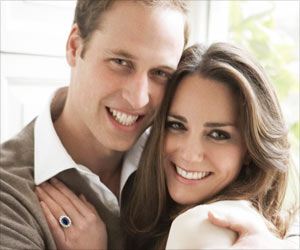Health activists, doctors have hailed Hollywood actress Angelina Jolie for her decision to reveal that she had undergone double mastectomy to reduce her cancer risk.

Her partner and fellow star actor Brad Pitt led a worldwide choir of praise on Tuesday, declaring her "heroic", followed by her doctors, fellow stars and thousands of supporters, who took to social media to praise her openness.
"We hope that the awareness she is raising around the world will save countless lives," Jolie's surgeon Dr. Kristi Funk of the Pink Lotus Breast Center in Los Angeles wrote on a blog, praising her patient's "bold choices."
Jolie's mother, Marcheline Bertrand, died of ovarian cancer at the age of 56 and passed on the "faulty" gene, BRCA1, that put the actress at higher risk.
Her doctors estimated she had an 87 percent risk of developing breast cancer and a 50 percent risk of ovarian cancer, prompting Jolie -- who has six children -- to take action to reduce the chances that she might die at a young age.
Revealing the procedure in an article in The New York Times, Jolie said her chances of developing breast cancer are now just five percent -- although she still runs a relatively high risk of contracting ovarian cancer.
Advertisement
"I can tell my children they don't need to fear they will lose me to breast cancer," said Jolie. She and Pitt, a Hollywood power couple dubbed "Brangelina" in the tabloids, have three adopted and three biological children.
Advertisement
The main surgery was on Saturday, February 16, and went smoothly, she wrote. Two days later, good news: "The pathology returned and I called Angelina to confirm our biggest hope: all of the breast tissue was benign."
"On day four after her mastectomies, I was pleased to find her not only in good spirits with bountiful energy, but with two walls in her house covered with freshly assembled storyboards for the next project she is directing."
"All the while she spoke, six drains dangled from her chest, three on each side, fastened to an elastic belt around her waist," she said.
The final operation was carried out on April 27, reconstructing the Oscar-winners' breasts with implants, which Funk said "went extremely well, bringing an end to her surgical journey."
"Breast and ovarian cancers take lives every day," Funk added, yet "knowledge and action can help prevent the premature loss of those who love us, and whom we deeply love in return."
Jolie also described a several-stage surgical process, the main one of which is an operation that can take up to eight hours as the breast tissue is removed and temporary fillers are put in place.
"You wake up with drain tubes and expanders in your breasts. It does feel like a scene out of a science fiction film. But days after surgery you can be back to a normal life," she wrote.
The final phase of the process involved reconstruction of the breasts with implants, she said, adding: "There have been many advances in this procedure in the last few years and the results can be beautiful."
Jolie thanked Pitt for his support, saying the couple had "managed to find moments to laugh together," and said she now has only small scars that her children can see without alarm.
"They know that I love them and will do anything to be with them as long as I can," wrote the actress, who took home the best supporting actress Oscar in 2000 for "Girl, Interrupted."
"On a personal note, I do not feel any less of a woman. I feel empowered that I made a strong choice that in no way diminishes my femininity."
Jolie, respected for her humanitarian work overseas, said she was speaking out to help other women understand their options, and also to urge authorities to help women in lower-income countries to get the health care they need.
"I am writing about it now because I hope that other women can benefit from my experience. Cancer is still a word that strikes fear into people's hearts, producing a deep sense of powerlessness," she wrote.
Jolie, one of the world's highest-paid performers, said the cost of getting tested for BRCA1 and another faulty gene, called BRCA2, is more than $3,000 in the United States and that this "remains an obstacle for many women."
"She's very brave to speak out," said Katherine McLane, vice president for communications at Livestrong, the cancer charity founded by cyclist and cancer survivor Lance Armstrong before his fall from grace in a doping scandal.
But McLane voiced hope that Jolie's experience would also generate "more attention about affordable health care for all women."
Source-AFP











